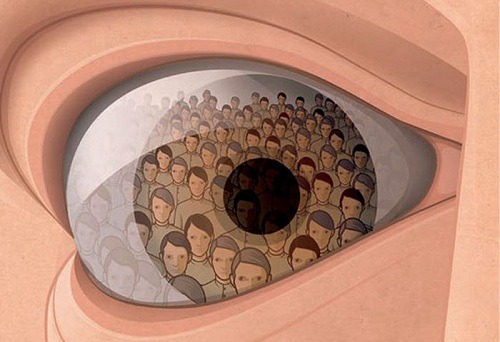
While I try to read a novel per month, the start to this year kept me in front of illuminated screens more often than my weary eyes appreciated. Having read Brave New World and The Great Gatsby so far in 2013, two more books this month and I’ll be caught up! Another bit of news that crossed by literary and technologist worlds: Amazon recently bought Good Reads. Barnes and Noble really dropped the ball on this one, their Nook is more of a play-thing than competitor to the Kindle; and relinquishing the future IMDB of books to Amazon may have been the final nail to their coffin. Remember Borders? Finally, let’s venture into a Brave New World.
Aldous Huxley wrote Brave New World with a Dystopian premise, contrary to George Orwell’s 1984 classic, because no one is paranoid or suspicious; and for good reason, there’s nothing to be paranoid or suspicious of. The setting isn’t Soylent Green, or a shady communist regime ruling with an iron fist. There isn’t any conflict by scientific design in this future. The citizens are brainwashed from birth to accept death, regulated drugs, promiscuous sex, and the absence of solitude in favor of socializing. Looking around today, it really isn't different from the constant bombardment of broadcast influence we currently sustain; and if you somehow survive this desensitizing upbringing, then you're free to leave with like minded individuals. Every citizen is a genetically modified test tube baby, which renders traditional birth and family structures extinct. Although there is a social caste system, work and play opportunities efficiently distract from transcendental thoughts. What's yours is basically mine, unless I don't want it.
The story specifically follows the actions and consequences of a man born to the highest social class; albeit, with less desirable characteristics, like his short height and obtuse facial features, which render him similar to a lesser social class. We’re treated to the rebellious thoughts of his genius, yet feeble mind, which are expressed and noticed by others around him, like outbursts of Napolean Syndrome. Attempts to make up for his shortcomings ultimately lead to encounters with people from the uncivilized world, where people do crude things, like work on farms, worship gods, and read Shakespeare; thereby introducing conflict to the monotony, which becomes monotonous in itself.
And oh the monotony! Woe is the reader if inventory lists and tallies don’t fancy them. I, for one, did not really need to know how much of everything presides in every scene; this tactic came across as filling filler. In theory, the daily repetition of easily productive work, sex, and drugs make for a great life; however, the book wears you down by constantly transcribing the equipment necessary to accomplish such a feat. I admittedly skipped a few paragraphs of fictional material accounting; then the conflict becomes the monotony, and seasons of Maury come to mind. Mustaph Mond, a character introduced in the final chapters, saves Brave New World by delivering the insight we bravely read towards. Through a series of question and answers, and speeches, he sums up the state of affairs, how it came to be so, and why it must remain this way; which I just so happen to agree with. Final rating: Bueno. The Great Gatsby is next!



Post a Comment